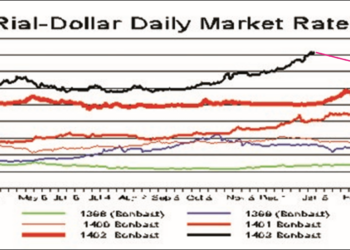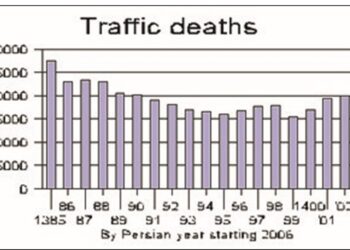just a completed a road trip across Iran interviewing businessmen and other Iranians on the impact of sanctions. He concludes they are “succeeding as intended: They are inflicting prodigious economic pain on Iranians and are generating discontent.”
Perhaps most surprisingly, Kristoff finds that Iranians are not blaming Americans for their economic decline; they are blaming the leaders of the Islamic Republic.
Kristoff said, “Most blame for economic distress is directed at Iran’s own leaders, and discontent appears to be growing with the entire political system. I continually ran into Iranians who were much angrier at their leaders on account of rising prices than on account of the imprisonment of dissidents or Baha’is. ‘We can’t do business as we used to, and our quality of life is getting worse,’ one man, who lost his job as a salesman, said forlornly. ‘We blame our regime, not Western countries’.”
He questioned whether the Islamic Republic could continue to flog nationalist issues to retain support against the hated foreigners. He agreed with the gov-ernment’s claims that Iranians tend to side with their government on the nuclear issue and are very angry over the assassinations of three nuclear scientists. But, he says, “People are much more focused on lost jobs and soaring prices.”
In a column published Sunday, Kristoff relates conversations he had with a number of people across Iran.
“One factory owner, Hassan Gambari, who makes electrical panels, told me that he had had to lay off 12 of his 15 workers. Another, Masoud Fatemi, who makes cotton thread and textiles, said that Western sanctions had aggravated pre-existing economic problems. ‘Prices have gone ridiculously high, so production is almost impossible,’ he said. ‘Everything has become harder, more time-consuming and more expensive because of the sanctions’.”
Fatemi told Kristoff an electrical inverter blew out a year and a half ago, closing one of his factory lines and costing him $500 a day. Because of sanctions, he said, he has been unable to get a replacement from the West, although he hopes to install one soon from South Korea—after waiting more than 18 months..
In Tabriz, Kristoff said he chatted with the owner of a store selling Nike, Adidas and Saucony sneakers. The shop owner told him that young men seeking to impress a girl wanted Nikes. But the shopkeeper said sales have dropped by two-thirds in the last year.
A major source of pain for shopkeepers came in March when Swift, the Belgium-based network for processing international bank payments, stopped handling transactions for Iran under orders from the European Union.
Kristoff said businessmen now pay for imports through the hawala system, paying cash to a hawaladar in the bazaar who then arranges a payment in a foreign city. “This is more expensive and less reliable than a bank transfer, but it’s now the main alternative,” Kristoff wrote.
He quoted a hawaladar as saying, “We are finding a loophole around sanctions. The Iranian nation has no other option.”
He quoted a young women in western Iran as telling him, “The economy is breaking people’s backs.”
Kristoff summed up: “Let’s be clear that sanctions are hurting ordinary Iranians more than senior officials….
“Yet, with apologies to the many wonderful Iranians who showered me with hospitality, I favor sanctions because I don’t see any other way to pressure the regime on the nuclear issue or ease its grip on power. My takeaway is that sanctions are working pretty well.”














